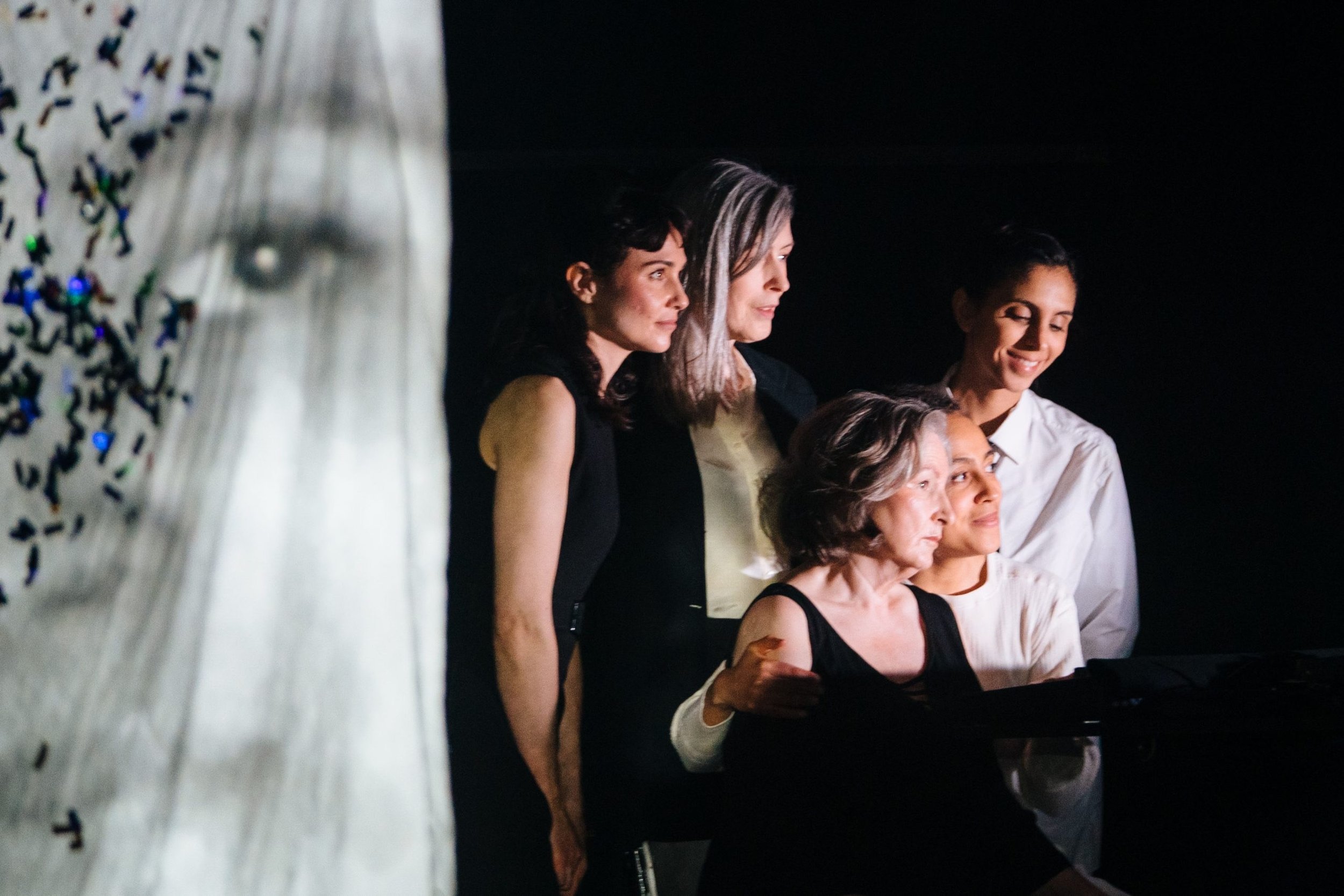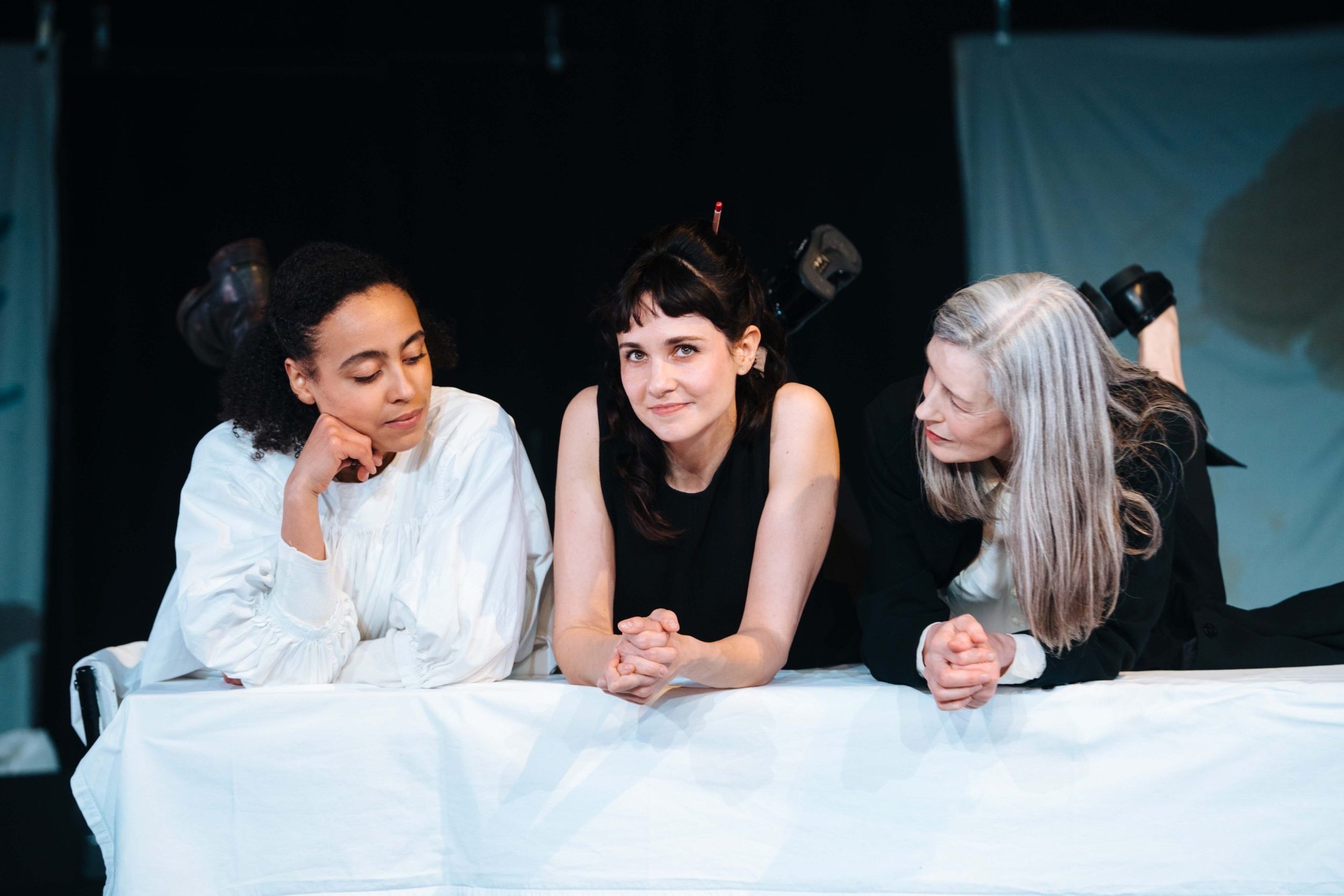“The Years” by Annie Ernaux
My Theatre Confidences 🤫
“The Years” by Annie Ernaux and adapted by Eline Arbo
Harold Pinter Theatre till 19 April
This play hit me so deeply, I had to sit with it for a while. Let it simmer in my reflections and feelings. I wanted it to stay with me.
What does it mean to live a life in fragments? To look back not as a clean narrative, but as a chaotic archive of moments, bodies, ideologies, rooms, silences? Watching The Years, I felt like I was paging through a collective diary; written in five voices, over six decades, and under the weight of being a woman in the 20th and 21st centuries.
Eline Arbo’s adaptation of Annie Ernaux’s memoir does something extraordinary: it makes time felt. Not as chronology, but as atmosphere. As residue. Through five actresses, we meet not a single character, but a shifting “she” who is also an “I,” and also, unmistakably, a “we.” And in that “we,” I’d include communities of feminist allies too.
The “plot” is not linear, but lived. Birth, marriage, abortion, affairs, motherhood, sexual awakenings, silences, social climbing, and comedowns; all refracted through historical shifts: post-war austerity, May '68, the consumer boom, second-wave feminism, AIDS, neoliberalism, the slow evaporation of idealism. This is not a show that tells you what happened. It asks you to remember what you were doing when history passed by.
I found myself thinking of the women I grew up with. I come from a working-class family, the third of three boys. My mum raised us while juggling jobs, energy bills, emotional labour; and she never did it alone. Her seven sisters, my aunties, were a constellation of care. Grounded, practical, fiercely independent women who worked relentlessly and loved even harder. Most of them raised children while working full-time. Some outlived husbands, others left them. All of them, in different ways, resisted the myth that a woman’s story needs a man to anchor it.
Watching The Years, I realised: these women, my women, have always known what Ernaux was writing about. They just didn’t call it feminism. They called it life.
What hit hardest was the play’s gaze on class. The central figure begins as a provincial shopkeeper’s daughter, climbs into the world of books and ideas; and finds herself stranded between worlds. That ache of dislocation? I know it. My mum and aunties lived it too, navigating class borders that rarely show up in the stories we’re told. The Years makes space for that quiet reckoning. It understands how class shapes voice, desire, and what we dare to believe we deserve.
And right now, that feels especially urgent. In the U.S., women’s bodies have once again become battlegrounds, not just in the courts but in rhetoric that insists on shrinking us down to biology and tradition. The rollback of Roe v. Wade, the politicisation of gender identity, the eerie nostalgia in Trump’s recent executive orders, all of it points toward a craving to control, to simplify, to erase the complex, messy lives that women actually live. The Years is a refusal of that erasure. It insists on remembering everything.
There’s a scene where a backstreet abortion is recalled; not with drama, but with devastating precision. I looked around the audience, mostly silent, and felt the room shift. This wasn’t just history. It was current. It was memory. It was prophecy. We've seen it before. We’re seeing it again.
Two female audience members fainted during this scene, just five minutes apart. The cast remained steady but responded with care and acknowledgment as they restarted the show.
The Years doesn’t offer catharsis, but it offers clarity. A kind of radical witnessing. It asks: what do we do with a life? What do we remember, and what do we bury? And how do we resist the systems that tell us to forget?
And still, a few weeks after seeing this play, I’m not just thinking of the character(s), I’m thinking of the real women I’ve known. The ones who scrubbed and wept and laughed and stitched their lives out of whatever was at hand. I thought of my mother, still caring. My aunties, still holding the line. I thought of how little space the world gives their stories, and how essential it is to write them, to speak them, to stage them.
A quick note on my reflections on the shows I see:
Let’s be clear: you won’t find the typical “review” on my page. I don’t buy into the so-called objectivity of mainstream theatre criticism; it’s outdated and protects toxic power structures while sidelining marginalised voices. I’m not objective, and I’m proud of it. I’ve got my own lenses. My reflections are personal, shaped by my lived experiences and values. I share what moved me, what challenged me, and what’s worth talking about; not ticking boxes or handing out stars.
And no, I’m not going to describe the whole plot or list every onstage moment; I find that mind-numbingly boring, both to write and to read.
Giuliano x
My Way of Looking at Theatre
You know, the more I think about it, the clearer it becomes that traditional theatre criticism has often been a tool for maintaining existing power structures.
It’s time to drop the privileged fancy talk around theatre and break free from star ratings.
My exclusive promo codes for handpicked shows
I love
Advertisement
















